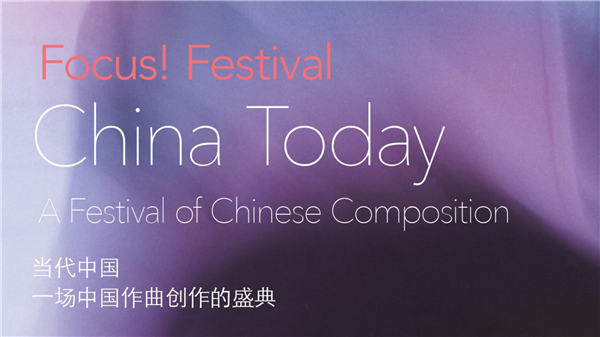Juilliard festival pays homage to modern Chinese classical music
CGTN | Updated: 2018-01-26 10:40

Every January, the Juilliard School in New York stages six free concerts as part of an event called the Focus! Festival. It emphasizes one theme. This year, the prestigious performing arts institution has chosen contemporary China as its inspiration.
Among the works on display at Juilliard's Focus! Festival is a piece called Lamura Cuo written by Ye Xiaogang, one of China's most well-known composers of contemporary classical music.
He's just one of 33 composers in the festival that features Chinese artists living predominantly in China. Some of the pieces are well known; others are getting their debut.
Seven composers, all born after 1980, were commissioned to write new pieces. The youngest is 21. Many of them were found with the help of the Juilliard School that is set to open soon in Tianjin in northeastern China.
The compositions mainly feature Western instruments. That's because Juilliard students are performing the pieces and most don't know how to play traditional Chinese instruments.
Soprano Vivian Yau is from Hong Kong. She's one of many Chinese students at Juilliard. "We grew up listening to traditional Chinese music, but we're here receiving training in Western music," she said. "We learn how to play Western instruments, Western techniques, and it's very special to combine the two when we have the chance, and this is kind of what we're doing with the festival."

As it highlights Chinese compositions with Western instruments, Juilliard's Focus! Festival begs the audience to ponder what makes Chinese music Chinese in an era when the world is more interconnected than ever.
Some Chinese composers use references to nature at the beginning of their music and others compose with pentatonic scales five notes per octave.
Violinist Julia Glenn, who speaks fluent Mandarin and has been researching Chinese contemporary music, says the nuances are often subtler.
"Something can feel Chinese in many different ways. With 56 different ethnic minorities and thousands upon thousands of years of history that encompasses a lot of different possibilities," said Glenn, a violinist at The Juilliard School.
Director Joel Sachs is less concerned about cultural markers but is focused on one thing.
"What we want to find is composers who have a strong individual personality, who write music that is music that no one else would have composed. It happens to sound Chinese that's fine and if it happens to sound Chinese and it's made by an Argentinian, that's fine too. As long as it's good," said Sachs.
























